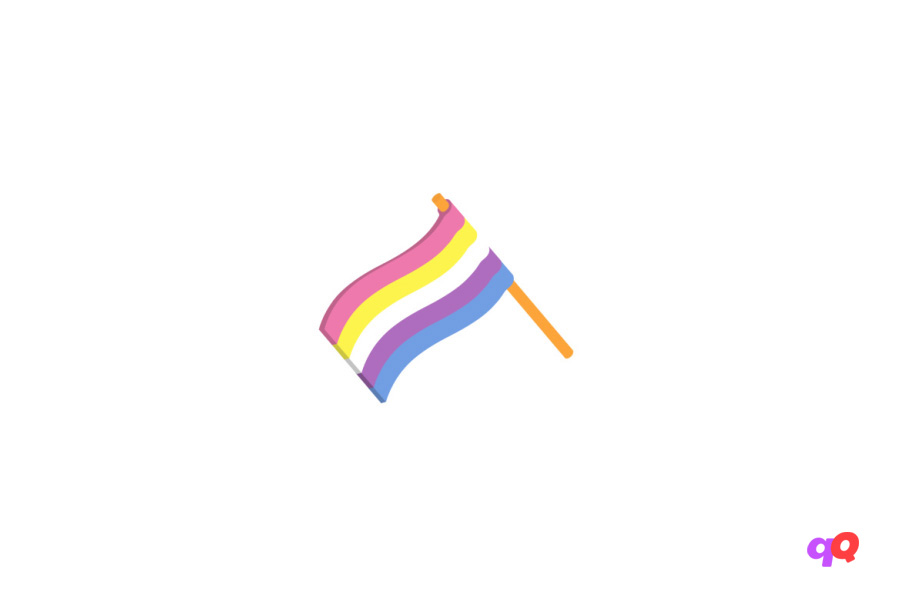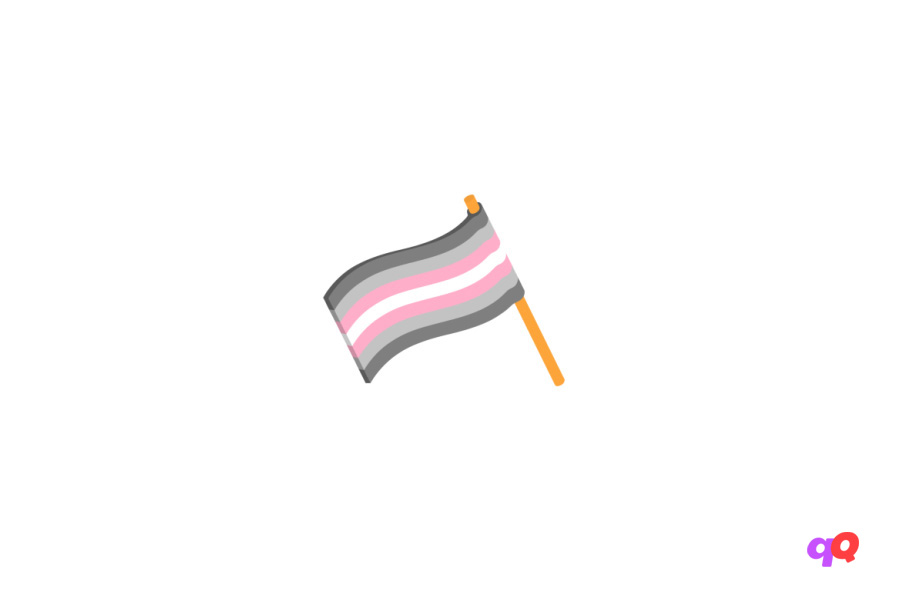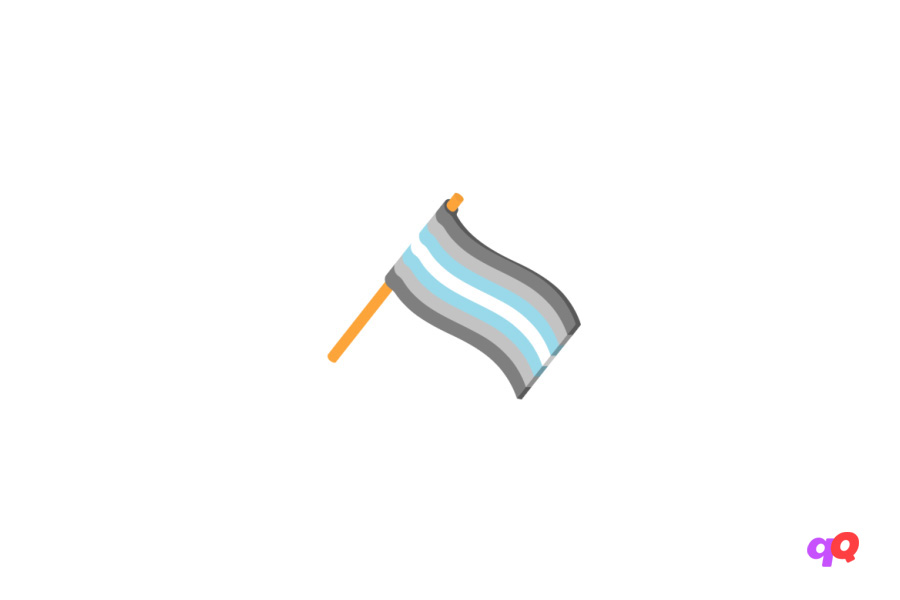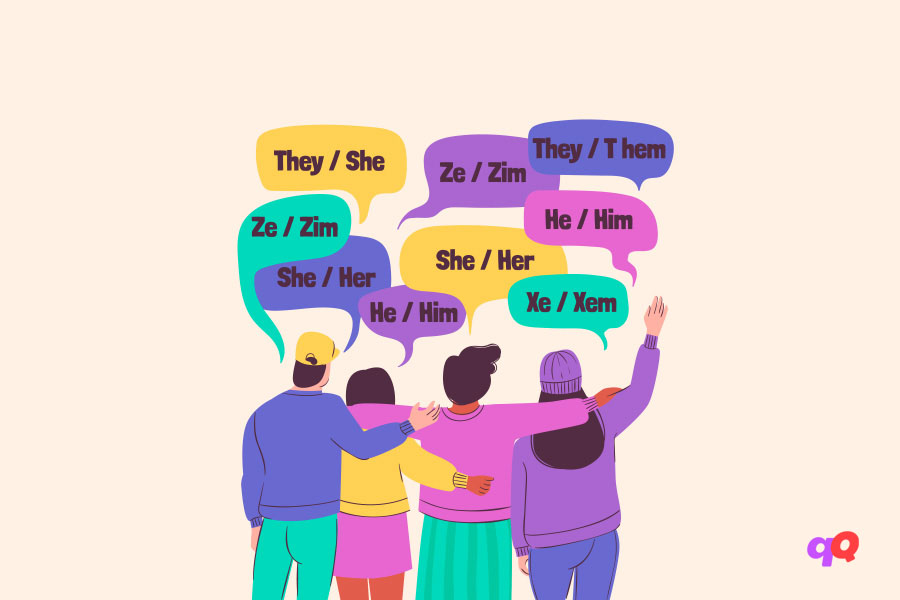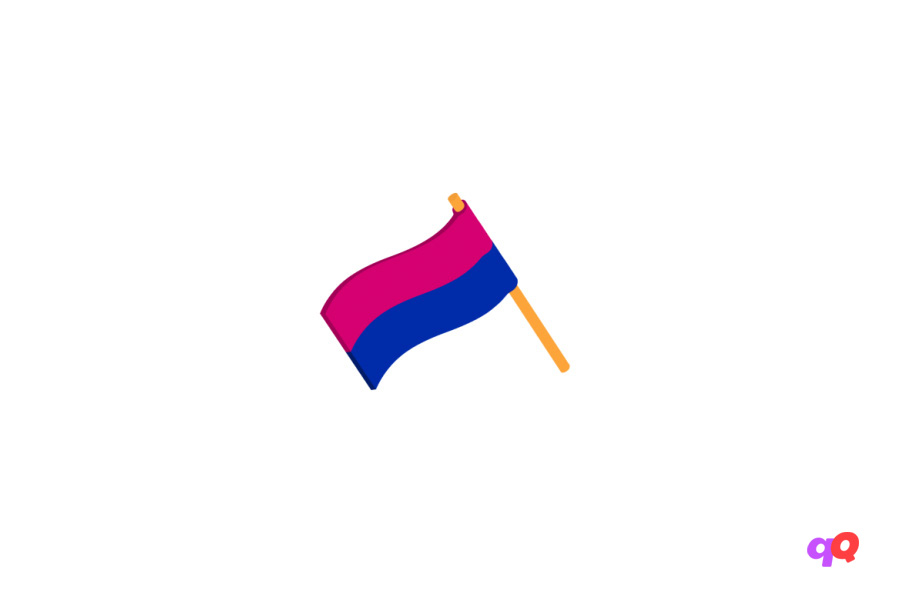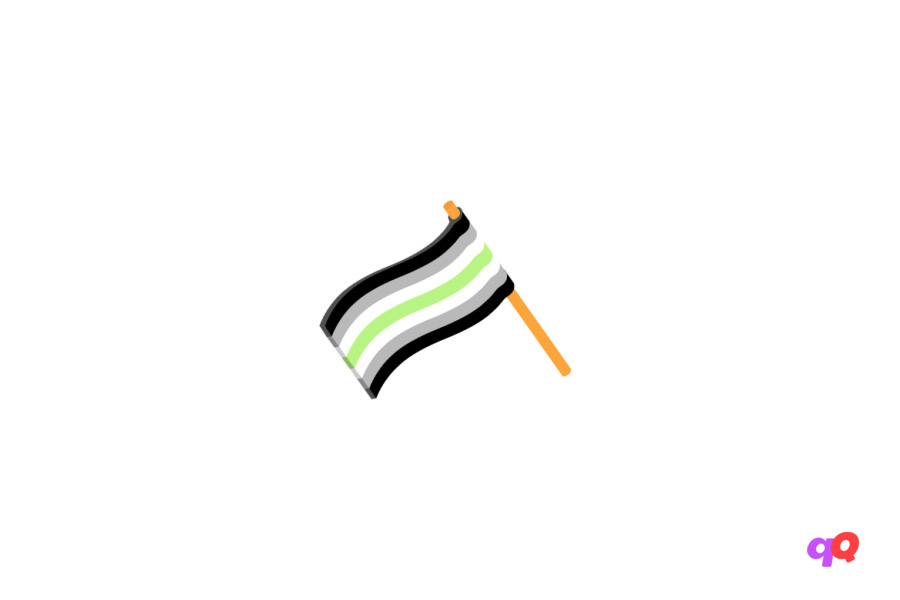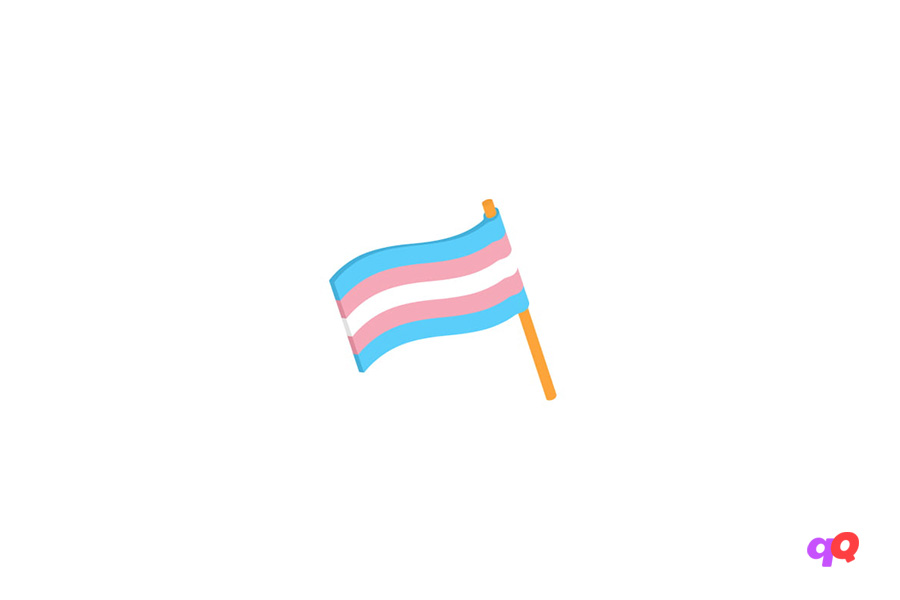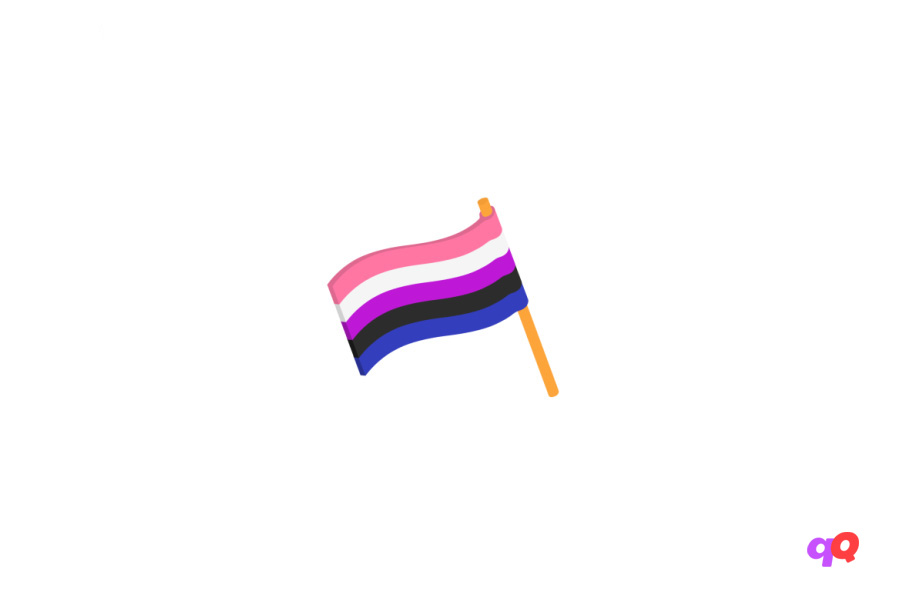Am I Nonbinary Quiz: Neither, Both, or In-Between?
○ DISCLAIMER
The quizzes and content on this website are designed for entertainment purposes only and should not be used as a basis for making personal decisions about your sexuality, gender identity, or any other life choices. These quizzes are not diagnostic tools and cannot determine your identity or orientation. If you're questioning your identity or need support, we strongly encourage you to seek guidance from qualified LGBTQ+ friendly professionals or counselors. Remember that your journey of self-discovery is unique and personal to you.
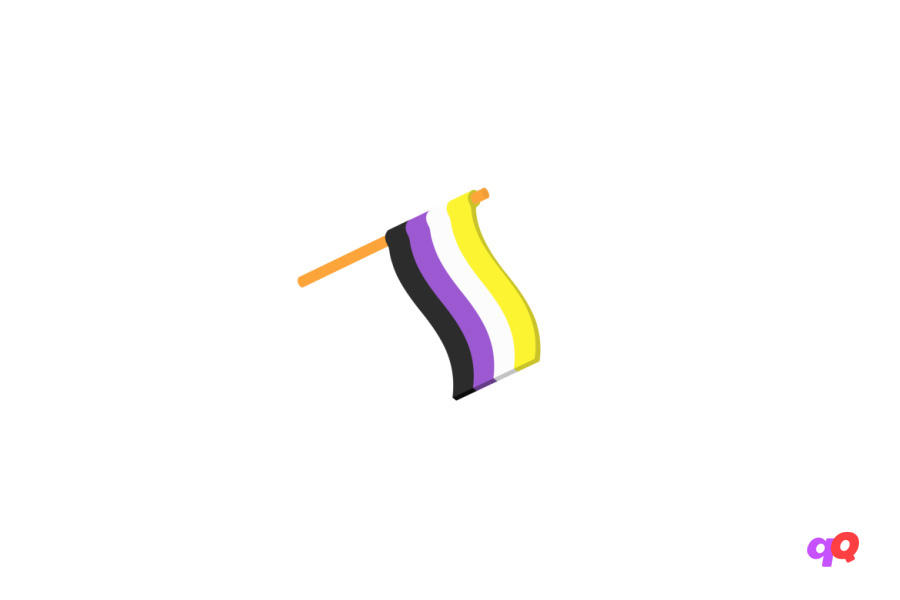
Imagine if from childhood you were taught that only two colors exist – blue and pink. Then suddenly you discover an entire spectrum of shades: purple, turquoise, lavender, indigo… Gender identity works much the same way – it’s far richer and more diverse than the familiar binary system of “man/woman.” If you’ve found yourself here, perhaps you’ve already begun to notice these shades within yourself.
Who Are Nonbinary People?
Nonbinary is an umbrella term for gender identities that don’t fit into the traditional binary system. It’s not a “third gender” and it’s not an “absence of gender” – it’s an entire universe of unique ways to feel and express your gender.
It’s important to understand the difference between three key concepts:
- Biological sex – these are the physical characteristics a person is born with (chromosomes, hormones, anatomy). And even here, nature doesn’t limit itself to two options – intersex people exist with various combinations of sexual characteristics.
- Gender identity – this is the internal sense of self, who a person feels they are. This is where nonbinary identity lives.
- Gender expression – this is how a person presents their gender to the world through clothing, behavior, voice, hairstyle.
Nonbinary people have always existed. Native American cultures have the concept of “two-spirit,” India has hijra, Samoa has fa’afafine, and the Jewish Talmudic tradition mentions six genders. Modern Western culture simply gave a name to what humanity has known for millennia.
What Will the Quiz Show?
Let’s be clear right away: no quiz can “diagnose” your gender identity. This isn’t a medical test or psychological assessment. The quiz is a tool for self-discovery, a kind of mirror that will help you better see and understand your own feelings.
The quiz analyzes various aspects of your experience:
- How you relate to gender roles and expectations
- Your feelings about your own body and how others perceive it
- Comfort with different forms of address and pronouns
- Internal feelings of belonging or not belonging to a particular gender
Quiz results aren’t a verdict, but an invitation to further exploration. They might confirm what you’ve already been feeling, or open new questions for reflection.
Signs of Nonbinary Identity Used in Creating the Quiz
In creating the quiz, we drew on research and the experience of the nonbinary community, identifying key markers that often point to nonbinary identity. These signs aren’t mandatory or exhaustive – each person has their own unique set of experiences. The quiz analyzes them comprehensively, creating a holistic picture of your gender experience.
Discomfort with Binary Categories
Many nonbinary people describe a feeling of not “fitting” into the categories of “man” or “woman.” It’s like trying to wear shoes in the wrong size – you can technically walk, but something’s constantly pinching and rubbing. Quiz questions explore how comfortable you feel when you’re categorized as a particular gender.
Gender Dysphoria and Euphoria
Gender dysphoria is distress from the mismatch between your internal sense and how others perceive you. But equally important is gender euphoria – the feeling of joy and rightness when your gender is recognized and respected. The quiz accounts for both aspects, because nonbinary identity isn’t just about discomfort, but also about what brings you joy.
Fluidity and Changeability
Some nonbinary people experience their gender as something constant, others as fluid and changeable. Genderfluid people might feel more masculine one day and more feminine another, or entirely outside these categories. The quiz includes questions about the consistency or variability of your feelings.
Relationship to Body and Its Modification
Not all nonbinary people experience dysphoria about their body, and not all seek medical transition. Some feel comfortable in their body but want society to perceive them differently. Others may desire certain changes – from changing hairstyles to hormone therapy. The quiz explores the full spectrum of these experiences.
Language Preferences
Pronouns are small words with enormous meaning. Many nonbinary people prefer gender-neutral pronouns (they/them). Some use multiple sets of pronouns or don’t attach much importance to them. The quiz considers your feelings about how you’re addressed.
Social Roles and Expectations
Gender roles permeate our lives – from what toys we were bought as children to expectations at work. Nonbinary people often feel uncomfortable in rigid gender roles or find pleasure in mixing them. The quiz explores your attitude toward these social scripts.
The Diversity of Nonbinary Experience
Nonbinary identity isn’t a monolith, but a kaleidoscope of identities. Here are just some of them:
- Agender people don’t feel a connection to any gender. This isn’t emptiness, but rather freedom from gender categories altogether.
- Bigender and polygender people experience two or more genders within themselves – sometimes simultaneously, sometimes alternately.
- Demigender people partially identify with a particular gender, but not completely. For example, a demigirl might feel a partial, but not complete, connection to femininity.
- Neutrois is a neutral gender identity that is neither male nor female, but is still a specific gender (unlike agender).
- Genderqueer is often used as a political identity, emphasizing radical rejection of gender norms.
Remember: everyone’s nonbinary identity is their own. Two nonbinary people can have completely different experiences, and that’s normal. There’s no “right” way to be nonbinary – there’s only your unique path.
Some nonbinary people consider themselves part of the transgender community (since their gender identity differs from what was assigned at birth), others don’t. Some use hormone therapy or have surgeries, others see no need for it. Some come out to everyone, others share this information only with close people.
The quiz is just the beginning of the journey. If the results resonate with you, explore further. Read stories of nonbinary people, connect with the community (online or offline), experiment with self-expression in safe environments. If they don’t resonate – that’s also valuable information about yourself.
Remember: your identity is valid regardless of any test results. Only you can know who you are. The quiz is simply a flashlight in the journey of self-discovery, and you’ll have to walk this path yourself. And this path, whatever it may be, deserves respect and recognition.

Source: Ipsos
○ Related Quizzes
Questions Overview
- I love them! They make me feel secure and comfortable.
- I don't think about them much.
- I find them limiting and restrictive.
- I actively reject them and prefer to live outside of them.
- I don't think about it much. I just use whatever space corresponds to my gender.
- It's not a big deal to me, but I understand why some people might be uncomfortable.
- I feel uncomfortable in gendered spaces and wish there were more options available.
- I actively avoid gendered spaces whenever possible.
- I love it! It's perfect the way it is.
- It's just a body. I don't really think about it much.
- There are some things I wish were different, but overall, I'm fine with it.
- I'm really uncomfortable with certain parts of my body, and I wish I could change them.
- I love it! It fits me perfectly.
- It's fine, but I don't really care.
- It bothers me a little bit, but I don't say anything.
- It makes me uncomfortable, and I would rather people use different pronouns for me.
- I stick to traditional gender norms and dress accordingly.
- I don't think about it much. I just wear what's comfortable.
- I like to mix and match different styles, regardless of gender.
- I actively reject traditional gender norms and dress in a way that feels authentic to me.
- I love it! It's perfect the way it is.
- It's just a voice. I don't really think about it much.
- I wish it was higher or lower pitched, but it's not a big deal.
- I'm really uncomfortable with my voice, and I wish I could change it.
- I love it! It perfectly fits my gender identity.
- It's just a name. I don't really think about it much.
- I feel like my name doesn't really match who I am.
- I actively dislike my name and wish I could choose something different.
- I don't really understand why anyone would use them.
- I'm fine with them, but I don't really use them myself.
- I like the idea of them, but I'm not sure if they fit me personally.
- I actively use gender-neutral pronouns to describe myself.
- I identify completely with the gender I was assigned at birth.
- I don't really think about my gender identity that much.
- I feel like my gender identity is more fluid than just male or female.
- I actively identify as a gender other than male or female.
- I think gender is really important and defines who we are as people.
- I don't really think about it much.
- I think gender is a social construct and doesn't necessarily define who we are as people.
- I actively reject the idea of gender altogether.
- I think society has it right when it comes to gender.
- I don't really think about it much.
- I think society has some things right, but there are a lot of things that need to change.
- I actively reject the way society views gender.
- I love seeing traditional gender roles represented in media.
- I don't really think about it much.
- I appreciate seeing more diverse gender expressions in media and pop culture.
- I actively seek out media and pop culture that represents a more diverse range of gender expressions.
- I prefer to date people who identify as the opposite gender.
- I don't really have a preference when it comes to gender.
- I like to date people who identify as a similar gender to myself.
- I actively seek out relationships with people who identify as a different gender than male or female.
- I don't really understand the nonbinary community.
- I'm fine with the nonbinary community, but I don't really feel like I'm part of it.
- I appreciate the nonbinary community and feel like I have a place within it.
- I actively identify as part of the nonbinary community and feel connected to it.
